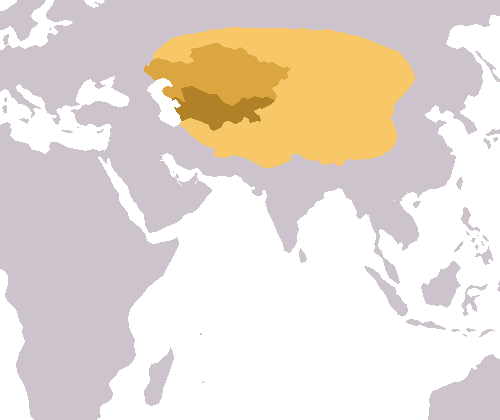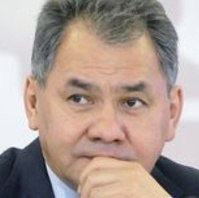Vladimir Putin’s Russia claims to be back to the “premier league” of world politics. However, hidden behind such exclamations of national grandeur is “bare life,” a physical struggle for survival without properly functioning institutions. This metaphor, coined by the political philosopher Giorgio Agamben, nicely catches the gist of Russia’s trouble. Other such allegories were sounded out at the International Winter School "Transformation of Modern Statehood" conference held recently in Estonia by the Institute of Government and Politics at the University of Tartu and the Higher School of Economics in Moscow as a part of the "Escapes from Modernity" project (http://escapes.hse.ru/).
“Emptiness” is often metaphorically used as a symbol of Russian politics. It started with Viktor Erofeev’s article “Putin and the Emptiness,” than it was Dmitry Bykov’s book “In an Empty Place,” and, of course, the portrayal of Moscow as an “empty city” on Putin’s inauguration day. The capital indeed was literally empty of people on the streets – such a contrast with Barack Obama’s inauguration ceremony, which was attended by almost a million Americans.
The term “emptiness” characterizes Russian politics in two ways.
First, it points to the lack of a future vision of the country and suggests that power in Russia is executed for the sake of power itself. But doesn’t all this go deeper in the society itself? Sergey Medvedev, one of the conveners of the Winter School and an influential media personality in Russia, deems that Russia’s identity is as empty as Russian power. He said with sad irony:
“Russia is as empty as the highway without asphalt, which I have driven through for two hundred kilometers on my way from Moscow to Russia’s western border.”
For him, “Buranovskie Babushki,” the singing group that represented Russia at the 2012 Eurovision song contest, is a sign of the deep crisis of Russian identity – a clumsy attempt to internationally brand provincial ethnicity, which does not exist in the real life (unlike in most European countries where ethnic rituals and ceremonies do matter a lot for local communities).
An essential attribute of identity-making is, of course, history. The Estonian movie “Men in Arms” (which was shown as part of the Winter School’s program) is an ironic reading of Estonian history as a series of defeats and internal skirmishes. Many see this movie as a sign of the nation’s health. Making your own past an object of mockery is affordable to countries whose history is not the sole source of contemporary identity. It is the lack of an attractive project for the future that makes the deeply entrench Russian political discourses rely on an artificially glorified history. Russian historical narratives largely appropriated by the state appear incapable of drawing a political line between national pride and national shame.
It is a lack (or a deficit) of well-established meanings in Russian public discourses that make it possible to revive Stalin’s heritage. The grotesque renaming of Volgograd to Stalingrad for six public holidays per year and the recent celebration of the 75th anniversary of a gulag town in Russia’s north, for example, are unfortunate episodes of today’s identity problems in Russia. Its power practices are extremely resilient, as shown in the movie “Boris Godunov” (which was also included in the program). By transplanting classical Pushkin’s text to contemporary Russia, the film’s director, Vladimir Mirzoev, made a strong case for showing meaningful feudal components embedded in today’s Russian politics.
Yet how can this inadequacy of Russian political culture be explained? One version is economic: it is the lack of a tradition of private property that prompts the reproduction of oppressive traditions in Russia. For centuries, living spaces, and also the very lives of human beings, did not actually belong to them.
Secondly, therefore, there is a biopolitical explanation of Russia’s politics, whereby the human body increasingly becomes subject to state regulations.
What people eat, drink, and smoke, what they do with their sexuality, how many children they are supposed to have, etc., the state seems to have ready answers to all questions. “Deviating” practices, such as homosexuality, are either punished or disciplined. The very bodies of children are said to belong to the nation – “they are our kids” claim proponents of the hypocritical legislation banning adoption by foreign parents, despite the fact that the majority of orphans are doomed to misery in Russia.
Normalizing procedures practiced by the state are not about educating, but mostly about possessing and controlling human bodies. Sergey Medvedev said, “It is not incidental that Putin compared the white ribbon protestors with vendors of contraceptives that in his mind are connotative with something inappropriate in terms of biopolitical regulation of natality.”
The biopolitical strategy of the Kremlin makes everyone guilty, be it smoking, making noise, or using obscene language. Prison is the most radical embodiment of the state’s desire to control human bodies, but it is practically a political institution in Russia. You won’t understand Russian politics without reference to the widely used practice of incarceration. The Khodorkovky trial, the Magnitsky affair, and the Pussy Riot verdict, are the most widely known illustrations of this.
There’s more. Gennady Onischenko, the chief of sanitation, elevated issues of hygiene to the level of national security. Vice-premier Dmitry Rogozin in 2005 as the head of the “Rodina” party was featured in a political ad under the slogan “Let’s clean up Moscow of the dirt” – obviously, this politically “hygienic” message was targeted at immigrants. Notwithstanding, all of this transpired against the backdrop of the decreasing quality of medical services in Russia.
In the meantime, Russia is a highly securitized country. There is a profound mistrust of the state (and each other) as manifested in people’s attempts to protect themselves from intruders by their own means such as erecting bulletproof doors or hiring private security guards. You stay just a couple of minutes in the Moscow metro and hear a series of repeated announcements warning you to be especially watchful and vigilant: don’t leave your kids near the escalators, don’t leave your personal belongings unattended, and, especially striking, do be ready for selective document inspections.
There is something unhealthy and unnatural in the fact that the state regularly demonstrates its alleged force (military parades and other security rituals) while its citizens return to explicitly medieval practices.
All of these paradoxes are the real “Putin’s Russia.” It is a country that is post-modern, pre-modern, and escaping from modernity.
Andrey Makarychev is a Guest Professor at the Free University of Berlin, blogging for PONARS Eurasia on the Russia-EU neighborhood.











